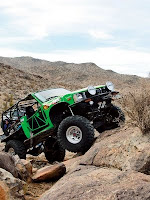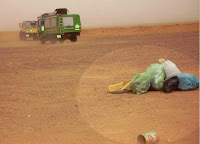Tribe, in 2009, I volunteered for WWF local chapter, EWS-WWF, to get hands-on knowledge about the local environment and wildlife. During my volunteering, I attended a few workshops and training sessions by EWS-WWF environmental researchers. During one such workshop, I learned perspective for conserving native wildlife. And realized how our small careless action can threaten locale wildlife and each one of us can take part in conserving UAE’s wildlife.
This covers seas, rivers, lakes, natural pools, *wadi, etc.
1. Fishing & Diving: Anchors can damage coral reefs. Fishing ropes can threaten sea life and injure them.
2. Fishing endangered species: High prices & demand can lead fishermen to target rare species, therefore it’s important that consumers should not increase the demand for rare species and consume seafood listed in sustainable fisheries.
3. Coastal & offshore development: Dredging can damage reefs, alters habitats underwater.
4. Overfishing: Fish are caught when they are too small and in numbers which the populations can not sustain.
5. Throwing rubbish: It can be eaten by turtles or other species, which then gets stuck in their digestive system & potentially kills them.
6. Red tide: Seasonal phenomenon possibly accelerated by high nutrient loads in coastal water
7. Oil pollution: Tankers waiting in seawater to enter the gulf occasionally wash out their tanks, resulting in dangerous oil pollution along the coast.

9. Introduction of non-native i.e. ‘alien’ species: These non-native species compete directly with native wildlife for food & space, putting native species at high risk for survival.
10. Excess groundwater pumping causes drying up water resources like the wadi pool.
(*Wadi- It’s an Arabic word. It’s a valley, gully or stream bed that filled with water from rain or oasis.)
1. Quarrying result in habitat loss & fragmentation
2. Hunting: Large mammals traditionally hunted for food are now needlessly hunted for sport. the population of these animals is decreasing at an alarming rate
3. Throwing rubbish: Toxic waste can pollute water, damage trees, and animals. Animals can eat rubbish which may be harmful to them.
4. Introducing alien species can compete with local species for food and space.
5. Developments cause loss of habitat in the region.
1. Due to Off-road driving burrows can be destroyed, animals & plants can be damaged by vehicles.

3. Throwing rubbish

5. Development: Large development in the desert leads to loss of habitat
Wildlife conservation tips when you are outdoors
1. Take your rubbish home with you.
2. Do not release any pet in the wild, to avoid disturbing native fragile and vernally wildlife.
3. When driving off-road stick to tracks, do not disturb wildlife.
4. Take care not to damage coral while swimming and diving.
5. Do not remove or damage any wildlife.
6. Do not damage plants or burn trees.
7. Don’t use single-use plastic, use paper, cloth, or reusable alternatives. Here are tips to go plastic-free.
8. If toilets are not available, find a location at least 100ft away from water resources. Dig a deep hole and cover up your deposit.
9. Do not put loud music when in wild, it can scare native species.
Read here is a complete Guide to wadies in UAE along with dos and don’ts.
WE ALL CAN PROTECT OUR WILDLIFE!!!

Amruta Kshemkalyani, an expert sustainability professional turned social entrepreneur, is the founder of the Sustainability Tribe, AK Sustainability
Read More >>
Copyright 2025 © Sustainability Tribe, Registered under 'Sustainability Tribe Marketing Management' in the U.A.E., Design by LBM INFOTECH
Thank You! Yes Konkan travel is on my list since many years, I have been there a few times in my childhood. Would love to share my future Konkan travel with my readers.
konkan, western ghat, are one of the most attractive tourism locations in the india. very interesting and attractive blog and post.. i likes it.. see Gruhkhoj Property Portal